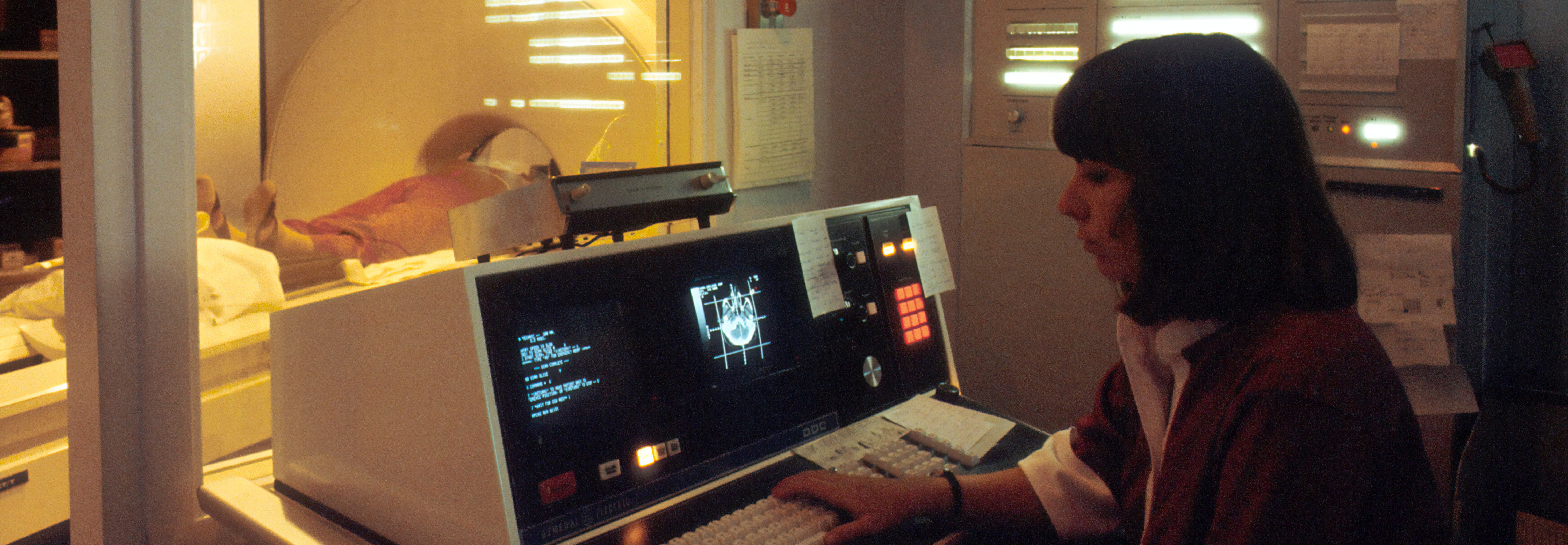

Magnetic resonance imaging (MRI) represented the next generation of medical imaging technology. Where potentially hazardous x-rays were once the only way for us to see inside human bodies—short of performing surgery—we are now able to take clear, useful photos of every part of the human anatomy using an MRI. These sophisticated and expensive machines are only entrusted to those that learn how to use them: MRI technologists. These professionals are trained in operating magnetic imaging machines and taking quality diagnostic images of patients.
MRI technologists are in-demand jobs with promising career prospects and many employment opportunities. If you're looking for a career in healthcare that positively impacts people's lives, an education in Magnetic Resonance Imaging (MRI) may be the option for you.
An MRI technologist is a professional who carries out diagnostic imaging examinations by creating diagnostic images using magnetic resonance imaging (MRI) scanners.
These MRIs use magnets and radio waves to create computer images of a patient’s internal parts.
Reasons for MRIs range from something as simple as a bad sprain to life-threatening internal injuries. MRI techs explain the MRI process to the patients and prepare them for the machine. Then, they position the patient in a way that allows them to take useful images of their injuries. Once the images are made, MRI techs use their experience to help physicians to interpret these images and diagnose injuries and illnesses that are living under the surface of the skin.
Communication Skills: As with any career that requires a good deal of patient interaction, an MRI tech should have good communication skills.
Empathy and Sympathy: People who have never had an MRI before may need a lot of reassurance and patience to be comfortable. Other patients may be in extreme discomfort already and will need compassion. So, MRI technologists must possess soft skills such as empathy and sympathy to help patients maintain their calm during the process.
Detail-oriented: MRI techs also need to be able to interpret images from the MRI machine, meaning that attention to detail is also an important skill for them to have. This is, of course, in addition to being able to learn and recall the intricacies of human anatomy that will be essential in these interpretations.
Math skills: MRI technologists may need to calculate the proper amount of radiation or magnetic resonance emitted in imaging procedures which will require maths skills.
Physical stamina: MRI technologists often work on their feet for long periods during their shift and must be able to lift and move patients who need help.
Technical skills: People in radiology, especially MRI technologists, must understand how to operate complex machinery.
Unlike traditional four-year college paths, becoming an MRI technologist could take just under two years.
High school students interested in radiology or MRI technology should take courses focusing on math and science, such as anatomy, biology, chemistry, and physics.
An Associate degree is an education typically required to become an MRI technologist. You may also consider postsecondary education programs that lead to graduate certificates or bachelor's degrees in healthcare and related fields and science technologies.
Depending on the field of study, education programs may include both academic study and clinical work. Coursework includes anatomy, pathology, patient care, radiation physics and protection, and image evaluation.
The American Registry of Magnetic Resonance Imaging Technologists (ARMRIT) accredits MRI programs. Some states require candidates for licensure to complete an accredited program. This MRI certificate program can be taken once students complete a Bachelor's Degree in Radiology Technology.
According to the US Bureau of Labor Statistics, the overall employment of MRI technologists will grow 9 percent from 2020 to 2030, about as fast as the average for all occupations. About 20,800 openings for this profession are projected each year, on average, over the decade. The primary reason behind the increasing demand for MRI technologists is accredited to the fact that there may be an increase in medical conditions, such as cancer and Alzheimer's disease, which require imaging as a diagnostic tool.
Along with the wide range of opportunities awaiting an MRI technologist, is a sound payroll.
The median annual wage for magnetic resonance imaging technologists was $77,360 in May 2021, while the average for all occupations during the said period was $45,760. The lowest 10 percent earned less than $59,110, and the highest 10 percent earned more than $100,870.
The first step to choosing a career is to make sure you are willing to commit to pursuing the career.
If you are an investigative individual with a curious, methodical, and rational mind, becoming an MRI technologist might be the right fit for you!
However, if you're unsure, take InternMart's Career Map Test to know if it's your calling and get a detailed breakdown of why you may or may not make a good MRI technologist.
The free career aptitude test will do the math for you and help you figure out your personality traits and how they relate to the career pathways you can explore and pursue.